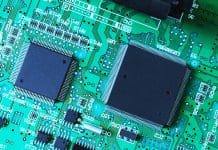Erwin Gianchandani and Michal Ziv-El from the National Science Foundation (NSF) provide a fascinating insight into how fundamental computing research is profoundly transforming our lives
From cybersecurity to autonomous vehicles and assistive robotics, investments by the National Science Foundation’s (NSF) CISE directorate have resulted in myriad breakthrough technologies over the last several decades that in turn have profoundly transformed our lives, addressed national priorities and driven economic competitiveness.
For example, in the mid-1990s, Google co-founders Sergey Brin, a former NSF Graduate Research Fellow and Larry Page, whose work was supported through an NSF Digital Library Initiative grant, created the “page-rank” algorithm that would become the basis for their groundbreaking search engine.
Around the same time, NSF-funded researchers at the Massachusetts Institute of Technology (MIT) developed algorithms to quickly deliver content via a geographically- distributed network of servers, reducing Internet congestion. This work launched a multi-billion-dollar industry and two members of the research team founded Akamai Technologies. Akamai is now valued at $10 billion and routes between 15 and 30% of the world’s Internet traffic.
Today, NSF’s CISE directorate aims to continue to advance the frontiers of computing, thereby enabling America to uphold a position of world leadership in computer, communication and information science and engineering; promoting understanding of the principles and uses of advanced computing, communications and information systems in service to society; supporting and providing advanced cyberinfrastructure to enable and accelerate discovery and innovation across all science and engineering disciplines; and contributing to universal, transparent and affordable participation in an information-based society.
To achieve these goals, CISE supports investigator-initiated research in all areas of computer and information science and engineering; helps develop and maintain cutting-edge cyberinfrastructure to enable research and education across all fields of science and engineering; and contributes to the development of a computer and information technology workforce with skills essential for success in an increasingly competitive global market.
In the recently-completed fiscal year 2017, CISE awarded more than 1,800 grants with a budget of $936 million, supporting nearly 18,000 people including faculty, postdoctoral researchers and graduate and undergraduate students. Furthermore, about 83% of all federally-funded fundamental, academic computer science research was supported by NSF DATAin the fiscal year 2017 and most of that through CISE.
The CISE directorate is organised into four primary units. The Division of Computing and Communication Foundations (CCF) advances computing and communication theory, algorithms for computer, computational and information sciences and architecture and design of software and hardware systems. The Division of Computer and Network Systems (CNS) invents new computing and networking technologies, while ensuring their security and privacy and finds new ways to make use of existing technologies.
The Division of Information & Intelligent Systems (IIS) studies the interrelated roles of people, computers and information to increase the ability to understand and harness data, as well as mimic the hallmarks of intelligence in through advances in artificial intelligence, computer vision, robotics, machine learning, natural language processing, computational neuroscience, cognitive science and related areas.
And the Office of Advanced Cyberinfrastructure (OAC) supports and coordinates the development, acquisition and provision of state-of-the-art cyberinfrastructure resources, tools and services essential to the advancement and transformation of all fields of science and engineering. Each CISE division/office comprises a number of programmes that collectively fund a portfolio of grants spanning a broad range of research, research infrastructure and education activities.
CISE-supported activities are aligned with emerging national challenges – and also with a set of 10 bold, long-term research and process “Big Ideas” that identify areas for future investment at the frontiers of science and engineering. For example, recent grants through the Transdisciplinary Research in Principles of Data Science (TRIPODS) program, co-led by CISE and NSF’s Directorate for Mathematical and Physical Sciences, aim to bring together computer scientists, mathematicians and statisticians to develop better data mining and machine learning approaches and enhanced visualisation techniques.
The TRIPODS awards are aligned with NSF’s Harnessing the Data Revolution for 21st-Century Science and Engineering Big Idea, which aims to advance fundamental research in data science and engineering; the development of a cohesive, federated, national-scale approach to research data infrastructure; and the nurturing of a 21st-century data-capable workforce.
Similarly, the almost decade-long Cyber-Physical Systems (CPS) program, led by CISE in partnership with NSF’s Directorate for Engineering and six other federal agencies, funds research that is integrating physical infrastructure, such as transportation networks and the energy grid, with “cyber” capabilities to yield new jobs and contribute to economic growth in cities and communities all across America.
CISE is also building the knowledge base for rigorous, engaging computer science education that can be accessed by all Americans: CISE co-funded with NSF’s Directorate for Education and Human Resources the development of a new Advanced Placement® (AP®) Computer Science Principles (CSP) framework and exam; more than 50,000 students took the first offering of the AP CSP exam in spring 2017, making it the largest single exam launch in the AP program’s 60-year history and the exam also saw enhanced diversity among the test takers.
It’s an exciting time to be in computer science! Computing is everywhere, touching all fields of science and engineering and impacting all facets of society – and it’s continuing to rapidly expand and evolve. As with Google and Akamai decades ago, sustained investments in fundamental research, research infrastructure and education by NSF’s CISE directorate today are powering the technological breakthroughs that will transform society for tomorrow.
Erwin Gianchandani, PhD
Deputy Assistant Director
Directorate for Computer and Information Science and Engineering
National Science Foundation (NSF)
Michal Ziv-El, PhD
American Association for the Advancement of Science
(AAAS) Science & Technology Policy Fellow
Directorate for Computer and Information Science and Engineering
National Science Foundation (NSF)
Tel: +1 703 292 5111











